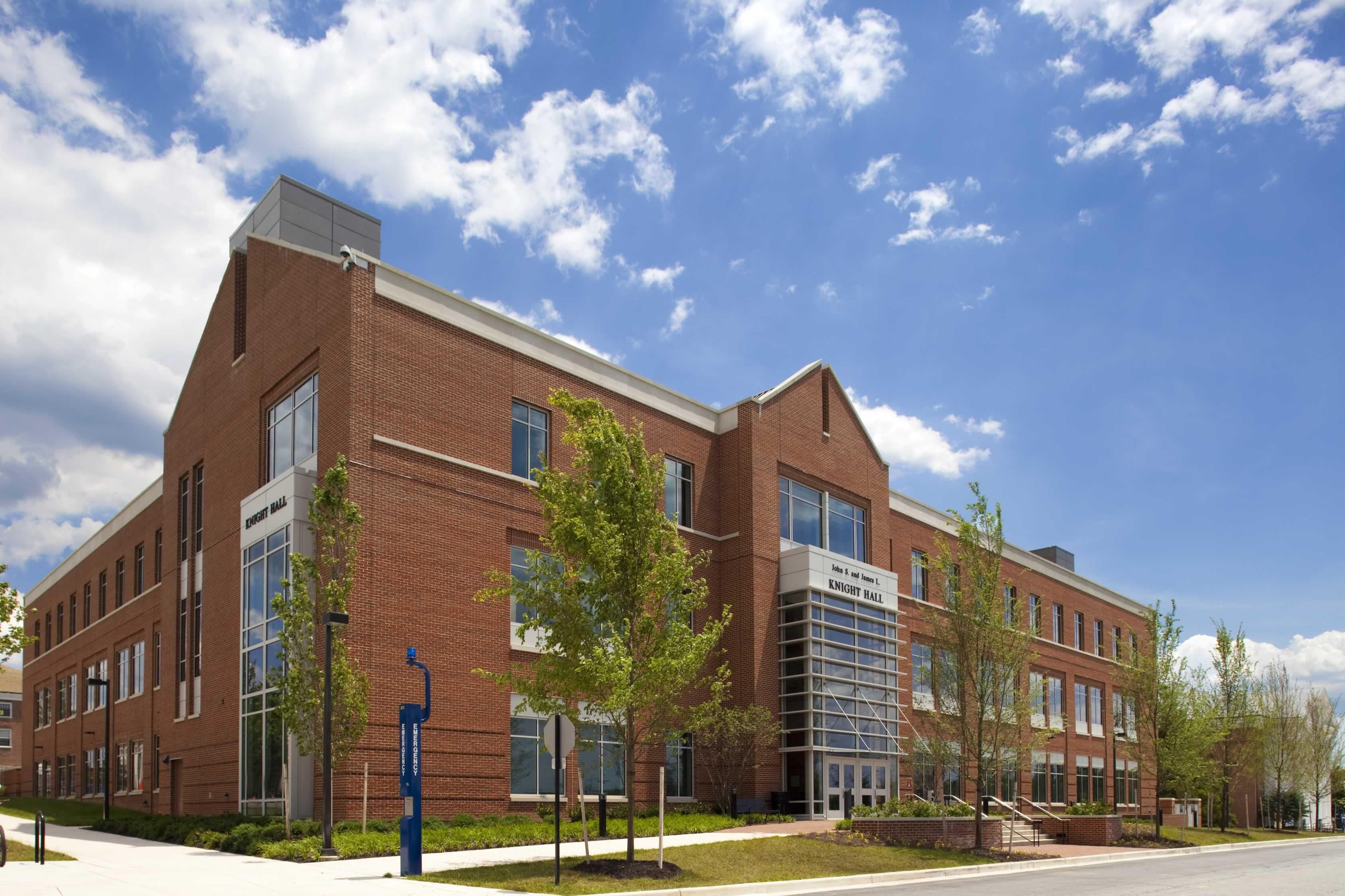Centers & Organizations
The Philip Merrill College of Journalism hosts and supports a number of signature centers and organizations in Knight Hall.
The Howard Center is a multidisciplinary, graduate-level program focused on training the next generation of reporters through hands-on investigative journalism projects. The Howard Center’s students work with news organizations across the country to report stories of national or international importance to the public. The Howard Center, funded by the Scripps Howard Foundation, honors the legacy of Roy W. Howard, former chairman of the Scripps-Howard newspaper chain and a pioneering news reporter.
The Shirley Povich Center for Sports Journalism serves Philip Merrill College of Journalism students and professional journalists, as well as the university and greater community through its panels, workshops and support of the college’s academic offerings, as well as research and analysis. The center serves as a launching pad for University of Maryland students to learn, actively participate in and develop the journalistic skills they need to meet the challenges of new media that face the next generation of sports journalists.
Media, Self and Society gives students the opportunity to engage in media-related active learning and to analyze the role various forms of media play in family life, politics, the economy and other elements of society.
Headquartered in Knight Hall, the National Association of Black Journalists (NABJ) is an organization of journalists, students and media-related professionals that provides quality programs and services to and advocates on behalf of Black journalists worldwide. Founded by 44 men and women on Dec. 12, 1975, in Washington, D.C., NABJ is the largest organization of journalists of color in the nation.
The Maryland Democracy Initiative grows the capacity of all people for a lifetime of civic participation in service to a fairer and more just society. We accomplish this through innovative interdisciplinary, community-centered research, teaching, learning and civic engagement. The initiative is a collaboration between UMD's College of Education, College of Behavioral and Social Sciences, Philip Merrill College of Journalism and School of Public Policy.
The International Center for Media & the Public Agenda (ICMPA), founded in 2006, conducts media and policy research & works with global leaders on domestic and international issues of concern. The center is directed by Susan Moeller, professor of media and international affairs at Merrill College.
The Future of Information Alliance (FIA) was launched at the University of Maryland in 2011 to examine the rapidly evolving information landscape and identify the rich opportunities and high-stakes challenges it poses. The FIA, directed and cofounded by Merrill College Associate Professor Ira Chinoy, serves as a catalyst for discussion, research and action – on campus and beyond.
The Computational Journalism Lab (CJLab) is a research facility in the Philip Merrill College of Journalism at the University of Maryland. It was established in August 2019 by Naeemul Hassan, an assistant professor jointly appointed at the Merrill College and the UMD College of Information Studies.
The goal of this lab is to advance the field of computational journalism by exploring interdisciplinary problems at the intersection of computation, information science, and journalism and thereby address issues with big societal impact. Some of the active research focus of this lab are:
- Automated fact-checking
- Misleading information detection
- Health misinformation
- Social-media sensing
This lab collaborates with other entities of the university such as the Horowitz Center for Health Literacy, Human-Computer Interaction Lab and with other universities such as the University of Toronto, University of Texas at Arlington, Utah State University, York University, Rochester Institute of Technology and more.
The Media Engagement Lab is directed by Merrill College Associate Professor Ronald Yaros. The lab analyzes audience metrics and extends that data to the myriad factors that influence all users, such as attention, time and interests as they engage with information.
The lab’s “digital cognition model” predicts how digital content can be presented to different users as they seek, select and share information. The goal is to provide the industry and the academy with innovative strategies to motivate more users to engage with more information for longer periods of time.
The Associated Press, an independent global news organization, maintains a full-time bureau at Knight Hall.

